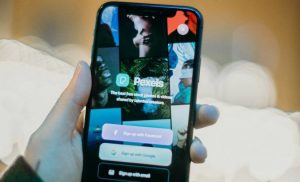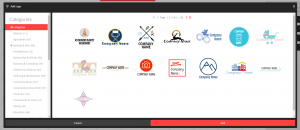Too often, we get coaching wrong–if we do coaching at all. We tend to think of it as something we do to some poor victim, something we do for them. Seldom do we think of it as something we do with someone, and in that, we miss huge opportunities.
Let me dissect this.
Too many managers think of coaching as something we do to someone. These managers inflict their opinions and direct the coachee. “You need to get you numbers up!” (Well dugghhh, I know that.) Or “Go do this…. then let me know what happens.”
This type of coaching is a waste of everyone’s time. The coachee doesn’t learn anything, and probably resents the coaching. As coaches, we loose because by doing this, we have taken the accountability away from the sales person and now are accountable for what happens.
The variant of this is doing something for someone. While we may be well intended, we believe by sharing our experience, suggesting what we might have done or how we might handle a situation is viewed as coaching.
Or, even better, we do non-directive coaching, helping the person learn to think for themselves, to figure things out, to help them learn how to assess things and develop alternative ways of looking at things and handling future situations.
This latter form of coaching is very powerful, it helps the coachee develop their capabilities both in addressing specific situations and in growing their capability.
But there’s a more powerful form of coaching. It’s a shared learning discussion. It’s not just and opportunity for the coachee to learn and grow, but it’s an opportunity to for the coach to learn and grow. At it’s lowest form (which is still very high), collaboratively we might discover some things that neither of us might have independently thought of, we might come up with a better approach. It’s this type of collaborative learning, that enable 1+1=5.
In every coaching opportunity, hopefully the coachee is seeking to learn and grow. Likewise we should have personal learning objectives.
One thing I do in every coaching session is that I have three learning objectives for myself:
- What do I learn about the person I am coaching? This helps me better understand the individual as a human being and to think about how I might be more impactful in future coaching situations.
- What do I learn about the business situation we are talking about? All managers have business management responsibilities. I want to use the discussion to assess the business opportunities. Depending on the type of review, I may learn more about the deal or account, about the pipeline, about our ability to meet our goals. Or I might learn more about our customers, markets, competitiveness.
- What do I learn that is new or causes me to think differently? What do I learn that causes me to grow as a leader and a person? While the person you are coaching may not be consciously trying to help us learn, if we go into every conversation with an open mind and a desire to learn, we will always learn something.
After, every meeting, I take a few minutes to write my observations on each of the three. The first two enable me to establish next step and action plans. The third is, often, the most important because it grows my capabilities as a leader.
In the best of circumstances, we hope our people learn something and grow in our coaching sessions. I think that is too narrow an objective. We must challenge ourselves to learn and grow in each situation.
Afterword: As we master this ourselves, imagine helping our people apply the same principles in coaching their customers. Think of how profoundly that changes our engagement model and how we collaboratively learn and grow with the customers.
Business & Finance Articles on Business 2 Community
(60)








